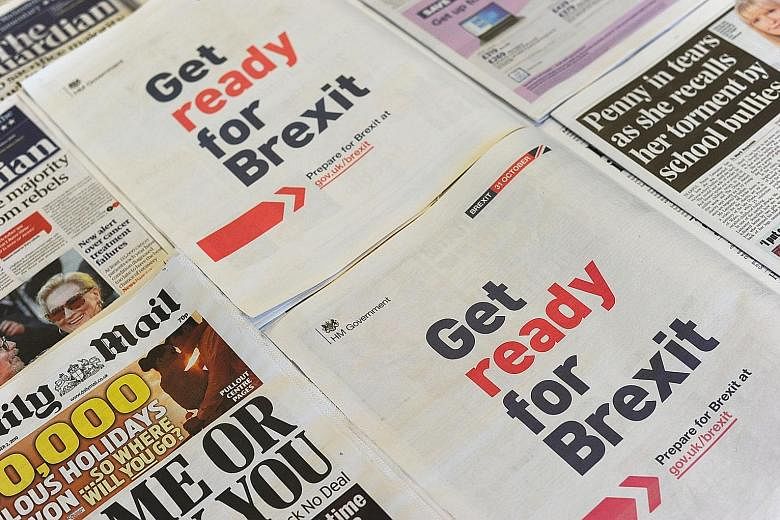The intractable trade war, disappointing Singapore growth data and weak yuan will take their toll on the Singdollar in the coming months, according to DBS analysts.
They tip the currency to weaken to 1.42 against the United States dollar by the year end. It was around 1.3802 yesterday.
"We remain cautious on the outlook for the SGD," they added.
"The trade-reliant Singapore economy is vulnerable to heightened growth worries in the world's largest economies. The trade war remains the top downside risk now.
"Multiple factors - higher US tariffs on European Union goods, a possible no-deal Brexit on Oct 31 and a weak German economy - could also tip the euro zone economy into recession."
Their forecast is for the Singdollar to end the year above 1.4 to the greenback.
DBS FX strategist Philip Wee and DBS economist Radhika Rao also noted yesterday that emerging-Asia currencies have weakened modestly in anticipation of disappointments at the US-China trade talks in Washington starting tomorrow.
"US President Trump made clear his preference for a big and not a partial deal. Conversely, China is realistic and would target only issues that both countries have agreed on this week," they added.
"Talks, however, will be difficult during a US presidential election year already marred by the Trump impeachment inquiry.
"Hopes (for) an interim trade deal... have been partly negated by the US Commerce Ministry's decision to place 28 Chinese government and commercial companies on its blacklist. The US has also hit EU wine and cheese with more tariffs."
Another factor in the mix is the Monetary Authority of Singapore monetary policy statement and advance estimate for third-quarter gross domestic product (GDP) due out on Oct 14.
The DBS analysts do not anticipate much change in the policy settings around the Singdollar.
"There is not yet a case for a return to a neutral or zero appreciation policy. Singapore is likely to avert a technical recession, and we are not forecasting deflation," the analysts said.
They noted that DBS' economist is tipping third-quarter GDP to come in at around 2.1 per cent after a negative second quarter and expansion of 0.7 per cent for the full year.
This is "in the upper half of the official 0 to 1 per cent forecast range", DBS analysts said.
"The Government, at this juncture, does not intend to respond with counter-cyclical fiscal measures such as an extraordinary Budget," they noted. "It will be monitoring to see if the weaknesses from the trade war have spread beyond the external and manufacturing sectors.
"Close attention will be paid to the labour market, where the unemployment rate for residents has been at or above 3 per cent since the (fourth quarter last year)."
Despite earlier downgrades, the official inflation forecasts for this year are not negative, DBS noted.
The forecast for the consumer price index was first lowered in February to 0.5 to 1.5 per cent, from 1 to 2 per cent earlier. This was followed in April by a downward revision in core inflation to 1 to 2 per cent, from 1.5 to 2.5 per cent previously.
"They are likely to end the year close to the floor of their official forecast ranges. For example, our economist expects headline inflation to recover to 1.1 per cent in 2020, from a projected 0.5 per cent this year," DBS said.



